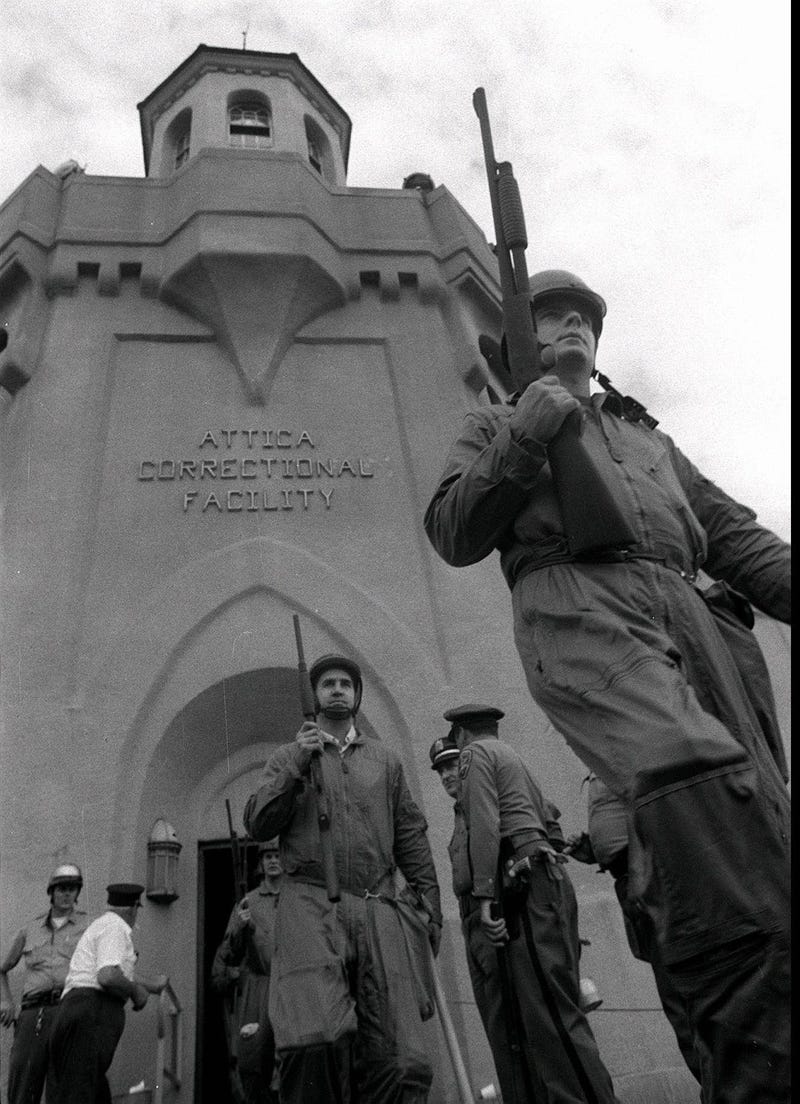
NEW YORK (WCBS 880) -- The New York Civil Liberties Union sued to end the New York State Department of Corrections and Community Supervision’s ban of a Pulitzer Prize-winning history book that describes a 1971 prison uprising and the subsequent massacre of inmates.
"Blood in the Water: The Attica Prison Uprising and Its Legacy" tells the story of a prison protest against abuse turned uprising and has been banned in all New York prisons since its release in 2016.
“One of the most startling aspects of the state of our prisons is the sweeping censorship that they engage in of reading material,” NYCLU attorney Antony Gemmell told WCBS 880's Mack Rosenberg.
The federal lawsuit argues the ban is a violation of prisoners’ First and Fourteenth Amendment rights, which guarantee freedom of speech and equal rights for all citizens respectively.
“People have a right to read, and people have a right to history,” said the book’s author Dr. Heather Ann Thompson. “We also have a right to have our books read. It’s a shame we live in a country where we censor people and ideas.”
Prisoners at Attica Correctional Facility in Upstate New York protested their mistreatment by guards and poor living conditions in 1971.
On Sept. 9, 1,300 inmates took over the facility and took guards and staff as hostages. After four days of negotiations with state officials for improved living conditions, the state opted to retake the prison by force.
An all-white force of hundreds of heavily armed state troopers and corrections officers stormed the prison on Sept. 13, killing 39 prisoners and hostages with gunfire.
In the weeks that followed, troopers and guards retaliated by brutalizing the prisoners.
The state failed to charge any state employee for the massacre and never supported the hostages who got caught in the crossfire.
The uprising and subsequent massacre led to prison reforms like the implementation of a grievance reporting system and the right to soap and hygiene supplies.
“Blood in the Water is a carefully researched account that includes the perspectives of incarcerated people, prison guards, their families, government officials and members of the public,” said the Cardozo School of Law Civil Rights Clinic director Betsy Ginsberg. “It is, simply put, a history book, and its denial to incarcerated people runs counter to this country’s core values.”
The state can't comment on pending litigation, but Department of Corrections policy says inmates shouldn't be reading material that encourages violence against law enforcement.
"The Supreme Court has been really clear — the fact that someone is in prison does not mean that they check all of their constitutional rights at the prison gates," said Gemmell. "People have a right to read, they have a right to learn, and Professor Thompson has the right to share her book which covers matters of very significant public concern and significant concern to incarcerated people."


